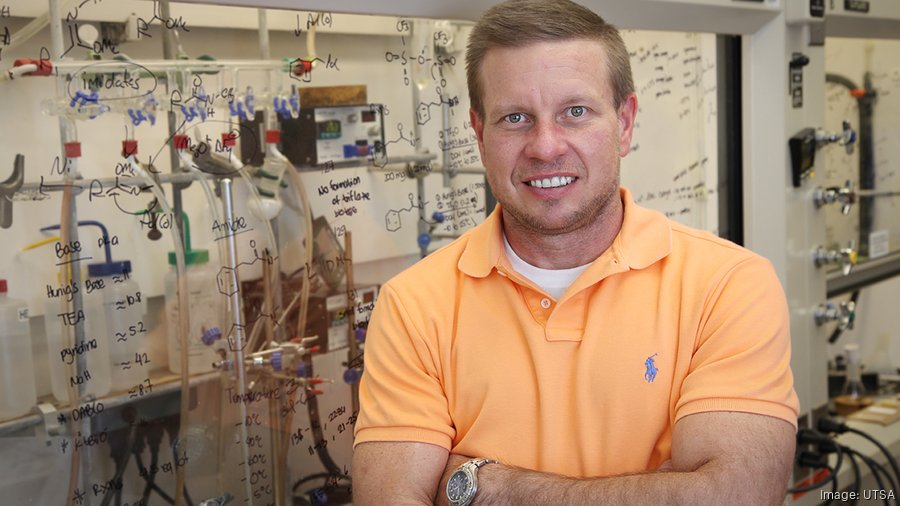There is no federally approved effective treatment for SARS-CoV-2, the virus that causes Covid-19, but that could change — thanks to a group of San Antonio researchers.
Doug Frantz, who chairs the University of Texas at San Antonio's chemistry department, is working with researchers at UT Health San Antonio and Southwest Research Institute on a therapeutic intervention that could prevent the entry of enveloped viruses such as SARS-CoV-2.
The team is working to develop antiviral drugs that block SARS-CoV-2 from entering human cells to minimize the impact of Covid-19 on patients infected with the novel coronavirus, Frantz said.
“I’ve built some very strong collaborations and partnerships — not only on campus but with our colleagues at UT Health and Southwest Research Institute,” Frantz said. “I’ve known these individuals for 10-plus years, and we’ve worked on multiple therapeutics in the past. That triad of expertise made a lot of sense with this particular approach to Covid-19.”
Over the past decade, UTSA undergraduate and graduate students in Frantz’s lab have designed and synthesized novel small molecular compounds. In April, Frantz shipped samples of about 250 of those compounds to researchers at the University of Texas Medical Branch at Galveston for testing. Cells that were infected with SARS-CoV-2 were pretreated with the compounds designed at UTSA.
The compounds, which have chemical properties similar to a pair of immunosuppressive drugs that were previously used to treat and prevent malaria, have shown promise in reducing the effects of Covid-19 in lab studies.
“What differentiates us is this chemical library that we have that is unique to us. Nobody else in the world has access to some of the molecules that we have,” Frantz said. “We’ve already found some potential treatments for cancer and potential treatments for chronic pain out of this library.”
The group is getting some funding here as the San Antonio Medical Foundation awarded a nearly $200,000 grant to support its work.
The Medical Foundation’s strategic plan prioritizes finding opportunities to encourage collaborative research, foundation President Jim Reed said.
“This grant, involving three of San Antonio’s best research centers, is a prime example of that,” Reed said.
Meanwhile, Frantz's group plans to seek additional funding for its work from the National Institutes of Health, he said.
Of the many places Frantz has been, he said San Antonio has a unique ecosystem of collaboration.
“Sooner or later, we are going to have a homegrown discovery here that’s going to put us on the map," he said. "It’s not a matter of if. It’s a matter of when.”
